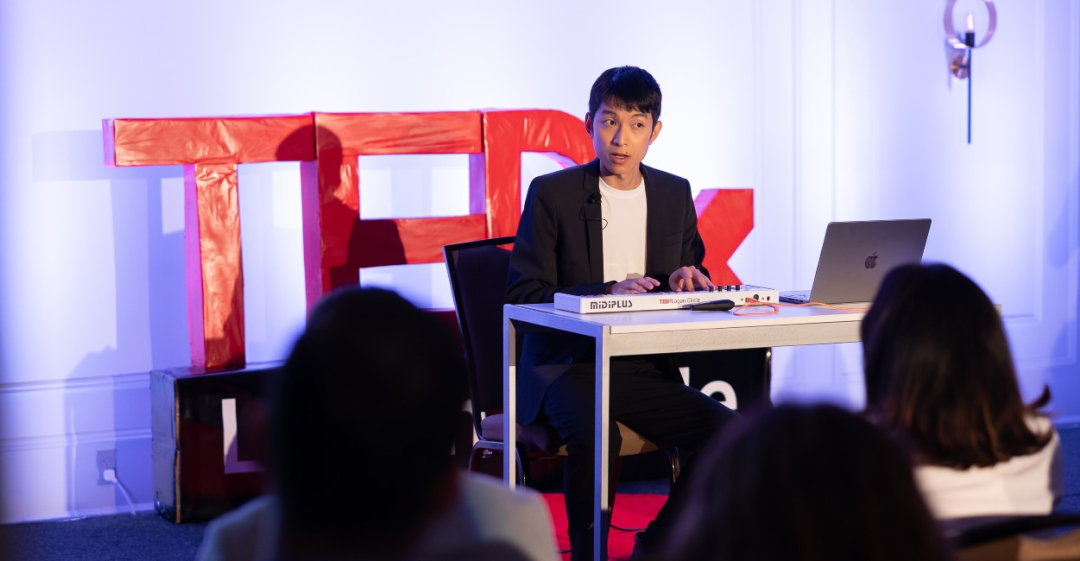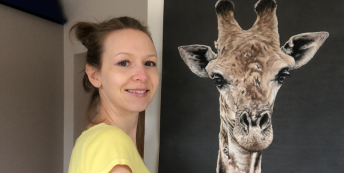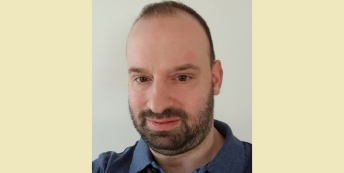“I needed a job that would let me reclaim my time and financial freedom.”

What work were you doing previously?
I was a composer, writing music for short films.
A bit of orchestral, pop, electronic, ambient. I dabbled in everything. My dream was to one day become a Hollywood film composer and make it big.
What are you doing now?
Now I’m founder and CEO of my own company, The Hidden Speaker.
I teach founders, managers, and executives how to tell stories with their data.
Why did you change?
Money was an issue.
I loved writing music but being a young person in New York City, I needed a sustainable source of income.
When was the moment you decided to make the change?
I remember working on music project after music project and getting paid peanuts (or nothing at all).
In my young age, I failed to realise that working all the time does not equal being productive.
I knew I needed a job that would let me reclaim my time and financial freedom.
How did you choose your new career?
Transitioning to tech seemed a logical choice, since I could learn what I needed to on my own without going back to school for another expensive degree.
After an exhaustive online search through potential tech careers, I settled on the data industry.
The reason being it was moving at a fast pace, you could build products very quickly, and I kept seeing this statement: “Data science is the sexiest job of the 21st century”.
Holding informational interviews with people I admired in the field solidified my choice. I began to learn everything I could: watching material online, building a portfolio of projects, and mastering all the technical skills I needed for a future role.
When I felt sufficiently ready, I then began a search for internships. With my limited job search know-how at the time, all I had was trusty Google, and thankfully it let me find an internship at Thermo Fisher Scientific. After applying cold and going through the interview, I got the position I wanted!
My time there was one of the most rewarding experiences of my career – real, feet-on-the-ground experience working with brilliant data professionals. But I realised data science wasn’t for me.
The day-to-day building algorithms ultimately wasn’t that “sexy” for my creative spirit. I needed to find another niche within data that could satisfy my craving for story.
After more online research I discovered there was such a thing: data storytelling. It’s a really niche field built on one fundamental principle: data and numbers by themselves are boring, and make people tune out.
It’s only when you organize data into story and present it in a human-centered way that you can influence people and inspire them to act.
I started to play around with some data storytelling projects to see how the role felt day-to-day, and realized this was exactly the work I had been looking for.
Are you happy with the change?
Data storytelling is my calling.
Because as a consultant and trainer, I get to make music everyday, just with numbers instead of notes.
I use the same principles I learned in music composition (how to engage audiences, how to increase tension, how to ignite emotion) to make ordinarily dry subjects come alive for my clients.
What do you miss and what don't you miss?
I miss the fun of music.
Data storytelling is highly creative, but the goal isn’t necessarily to have fun, entertain, or uplift. Typically, the goal is to help people understand how to make their business better.
But I don’t miss the financial instability. While I believe music is one of the greatest gifts we can give and something many people “need”, it isn’t necessarily easy to make a living off of.
How did you go about making the shift?
I went all in.
I redirected my hustle culture mindset from churning out music to learning my new field.
To master data storytelling, I consumed more online material to master the theoretical side, and built more portfolio projects to master the application side.
Then when I was ready, searched online to find a paid fellowship at the U.S. Department of Transportation. It was for data journalism and an exact match to the skills I had been building. I applied cold, went through the interview, and got the role I dreamed of.
My career was now full steam ahead. I went on to get full-time jobs in different Fortune 500 companies that let me put my new skills to the test and positively impact new industries within the data space.
How did you develop (or transfer) the skills you needed for your new role?
Interestingly, my background in music proved to be a tremendous asset rather than liability.
My first boss said he hired me because I was different. The portfolio I showed him was one of the most creative and unique he’d seen.
And because my career in music taught me how to tell stories and engage audiences, I was able to work with stakeholders well and explain complex concepts in an accessible way.
What didn’t go well? What wrong turns did you take?
I took on several different data roles over the course of my career, in both the public and private sector, and the corporate world had its own set of challenges.
While I enjoyed the work, I felt disconnected from my core value: creative freedom.
I wanted to return to my entrepreneurial roots and take all the skills I learned to start my own company.
How did you handle your finances to make your shift possible?
To make sure I was set up for success, I stayed in my corporate job.
I bided my time. I saved more and more money, enough so that if I left my job and my business didn’t work out, I'd be ok.
What was the most difficult thing about changing?
As a business owner the most difficult thing was financial instability.
Some months I’d make a good amount of money. Others, nothing. It was very hard to predict my earnings and very hard to get a consistent stream of clients.
What help did you get?
I found mentors and coaches who helped me along the way, and supported me as I improved my marketing and sales skills.
Most importantly, I developed my personal brand. I set up my profile on LinkedIn, began posting regularly to establish thought leadership, designed my own website, launched a YouTube channel, and eventually used my growing social media presence to land new clients.
I learned the power that content alone has to grab attention, provide value, and pull people in to learn more without being overly sales-y.
What have you learnt in the process?
I learned that good things take time.
When I started my business, I was so eager to prove I was going to make it and that taking the risk was worth it.
But I realised a huge part of business is building solid relationships. And good, authentic human relationships, founded on more than pure transaction, take a long, long time to build.
What do you wish you'd done differently?
I wish I’d been more patient with myself and given myself more grace.
I pushed myself to grind away, with the same hustle culture mindset that let me make a lot of music and change careers.
But as I got older, got married, and began to want to have more time for myself and my family, I realized that kind of life was unsustainable.
What would you advise others to do in the same situation?
I’d recommend others find a community to support them.
Especially if you’re a solopreneur, it can be lonely and confusing to figure everything out on your own.
But at the end of the day there are good people out there eager to lift others up. It’s all about being open to receiving that help!
You can view Christopher’s TEDx talk here.
What lessons could you take from Christopher's story to use in your own career change? Let us know in the comments below.



